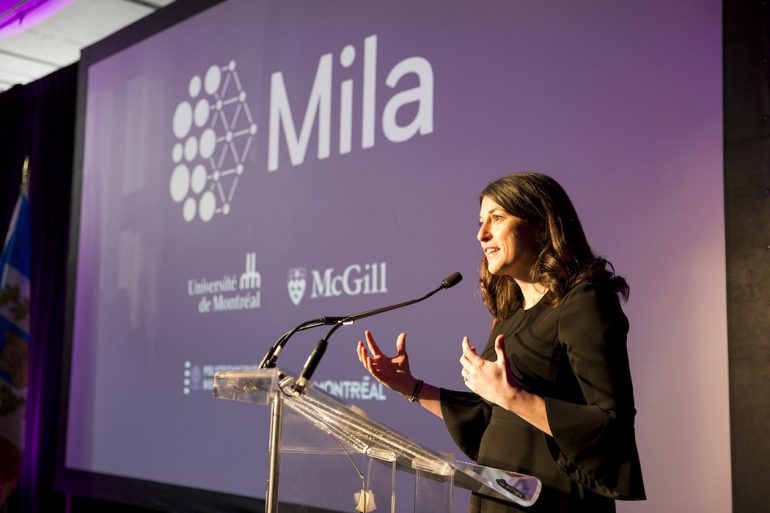Artificial intelligence (AI) is becoming increasingly commonplace in our society—from its implementation in smartphone apps like Siri and the curation of playlists on platforms like Spotify, to credit score calculations and even works of art. Over the past several years, McGill and, more broadly, Montreal, has emerged as a hub for artificial intelligence research. Companies such as Element AI, Stradigi AI, and Imagia—all companies using AI to push the limits of their respective fields—now call the city home.
In 2016, researchers from Université de Montréal and McGill founded Montreal’s Institute for Learning Algorithms (MILA). MILA has attracted big names in AI research, such as Joëlle Pineau, a William Dawson Scholar and associate professor at McGill specializing in robotics, healthcare, and conversational agents. It has also received generous funding from both the Canadian government and private companies such as Google and IBM.
“MILA has contributed to the growth of the local AI sector for sure,” wrote Abdelrahman Zayed, a researcher at MILA, in an email to The McGill Tribune. “New students [and] researchers come specifically to Montreal because of MILA’s reputation.”
The positive impacts of AI are already being felt in Montreal. Major talent in AI is coming to the city, searching for the opportunities offered by numerous major tech companies, many of which receive supplemental funding from the government. MILA alone employs approximately 750 people, including industry professionals, students, and faculty members from the different universities involved in the project.
AI’s effect on the economy is massive. From 2017 to 2021, the industry was responsible for a $1.9 billion increase in Quebec’s gross domestic product alone. The investments from the Quebec government have also led to the creation of 3,000 jobs per year in the sector. The growth of MILA is only one example of how these jobs contribute to innovation in Montreal.
“The environment is super diverse, and full of talented people from all over the world,” Zayed wrote.
“Research is all about novel ideas, so imagine when you put [hundreds of] talented researchers all in the same building.”
The AI industry, however, is not without its flaws. Zayed explained that AI algorithms can mirror some of the negative patterns in human thinking, such as racism, sexism, and other forms of discrimination. For example, AI algorithms that are trained on data from historical criminal conviction records disproportionately identify Black and Indigenous cases as high-risk repeat offenders because these groups are already overrepresented in the prison population—not because they are inherently higher-risk individuals. Also, these algorithms can violate people’s privacy, such as in the case of facial recognition systems.
“When you start deploying AI systems, you will start seeing some undesirable behaviours, such as being sexist, racist, etc.,” Zayed wrote. “They can also violate people’s privacy.”
The implementation of AI could also influence the makeup of the workforce: The highest-paying jobs are often allocated to those who can afford higher-level degrees. Furthermore, competition between companies may become more one-sided, with companies that are quick to implement AI-centric practices gaining an edge over those who do not. Additionally, a major disadvantage with AI in its current state is its limited capability to come up with creative solutions.
“AI systems still struggle when they see new problems that don’t resemble what was seen before,” Zayed wrote. “We still have not reached our goal of having a system that is as intelligent as humans, or even close to that.”
As a leader in this burgeoning field, Montreal is at the forefront of exploring and developing new and interesting implementations of this technology. But with that comes the responsibility of ethically implementing the technologies developed. For its part, MILA has developed various initiatives that aim to tackle issues such as gender and racial bias, climate change and human trafficking using artificial intelligence. This is only the start for AI research in Montreal.









Pingback: School of Computer Science celebrates 50 years of groundbreaking research, and exemplary leadership - The McGill Tribune
Life is not fair, Al, tries to make make it more fair!!